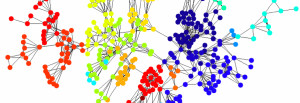It’s not exactly a vote of confidence in the powers that be: A sizable number of Americans think the undead would do a better job than our Representatives in Washington, D.C.
Americans ages 18 to 64 express slightly more confidence in zombies to run things than in the federal government. Seniors have more faith in the government.
Do over-the-top political attack ads work?
 The political advertising cycle is about to heat up again and outrageous attack ads are already hitting the airwaves. A new political advertisement attacking San Diego mayoral candidate Nathan Fletcher is raising eyebrows because it is from a political action committee: Zombies for Responsible Government:
The political advertising cycle is about to heat up again and outrageous attack ads are already hitting the airwaves. A new political advertisement attacking San Diego mayoral candidate Nathan Fletcher is raising eyebrows because it is from a political action committee: Zombies for Responsible Government:
VIDEO: http://www.youtube.com/
Two videos from the “Zombies for Responsible Government Opposing Nathan Fletcher for Mayor 2013” were posted within the past week. The group registered with the California Secretary of State in October.
Published reports said the documents filed with the San Diego City Clerk show the group was registered by David Bauer, a treasurer with the conservative Sacramento Valley Lincoln Club. However, those documents are not clear as to who is really behind the group.









